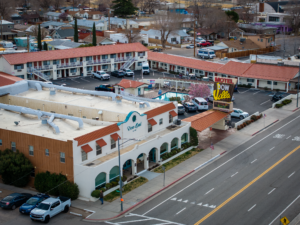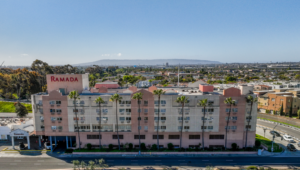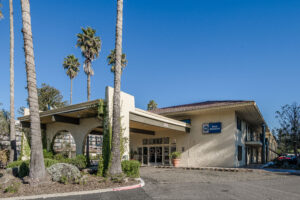Group Led by Chinese Firm Anbang Bids $12.8 Billion for Starwood Hotels
Group Led by Chinese Firm Anbang Bids $12.8 Billion for Starwood Hotels
Los Angeles Times
03/15/16
Group Led by Chinese Firm Anbang Bids $12.8 Billion for Starwood Hotels
James F. Peltz & Julie Makinen
http://www.latimes.com/business/la-fi-anbang-blackstone-20160315-story.html
Nearly 30 years after cash-rich Japanese companies began snapping up prime U.S. real estate, Chinese companies are following suit at a record pace as they search for solid international investments to make up for slowing growth at home.
The latest is Anbang Insurance Group Co., a once-obscure Chinese insurer that’s taking a fast, multibillion-dollar ride up to the penthouse of the American hotel industry, aided perhaps by its ties with Chinese political leaders.
Formed only 12 years ago, Anbang is aggressively trying to buy luxury U.S. hotel properties from Southern California to New York in $21 billion worth of potential deals.
On Monday, Anbang led a group making an unsolicited $12.8-billion offer for Starwood Hotels & Resorts Worldwide Inc., which owns the Westin and Sheraton brands, among others.
That came only days after Anbang reportedly agreed to buy Strategic Hotels & Resorts Inc., whose posh properties include the Hotel del Coronado near San Diego, from the private equity firm Blackstone Group for $6.5 billion.
Anbang in late 2014 also bought the famed Waldorf Astoria hotel on New York’s Park Avenue for nearly $2 billion.
Amid the slowdown in China’s economic growth and devaluation of its currency, Anbang’s buying spree reflects its desire to diversify its holdings by adding valuable real estate in the United States and Europe.
“These are turbulent economic times and yet we see Chinese companies acting with confidence and continuing to make major moves in Europe and North America,” said Michael DeFranco, chairman of the global mergers and acquisitions practice at the law firm Baker & McKenzie.
Chinese investment in North America and Europe reached $40 billion last year. Investments in hospitality alone totaled more than $6 billion in large part because Chinese outbound tourism has soared and Chinese firms want a piece of that action outside their home market.
And 2016 looks to be bigger yet. The first six weeks of 2016 were the busiest period on record for announced Chinese merger-and-acquisition activity in North America and Europe with $70 billion worth of potential deals, Baker & McKenzie said.
Much of that activity is occurring in California. In 2015, California was the second-highest U.S. destination (behind New York) for Chinese direct investments, which rose 22% to $3.4 billion, according to the research firm Rhodium Group.
The moves by Anbang (pronounced Ahn-bahng) and other Chinese companies are the latest examples of how foreign investors, when flush with wealth, have sought stakes in swanky real estate and other high-profile U.S. properties over the last three decades.
Japanese companies in the 1980s acquired properties including the Hotel Bel-Air in Los Angeles and Rockefeller Center in New York. Just a few years later, though, the economic surge in Japan that fueled the deals collapsed.
About a decade ago, Saudi Arabian billionaire Prince Alwaleed bin Talal and Microsoft Corp. co-founder Bill Gates acquired the Four Seasons luxury hotel chain, and Alwaleed led an investor group that bought Fairmont Hotels & Resorts Inc.
“We’ve gone through a number of these waves where foreign financial interests buy U.S. real estate as an attractive asset,” said David Katz, a lodging and gaming analyst at Telsey Advisory Group.
Anbang had signaled it would be a busy player in the market. In completing the Waldorf-Astoria deal, the company said it planned to invest in more “high-quality real properties in North America.”
The firm’s reported deal for Strategic Hotels & Resorts, for instance, would give Anbang control of the Hotel del Coronado and 15 other stylish properties, including the Montage Laguna Beach and the Ritz-Carlton Laguna Niguel in Southern California. The transaction hasn’t been announced publicly yet.
It remains to be seen whether Anbang group’s $76-a-share bid for Starwood succeeds. Starwood already has agreed to be purchased by Marriott International Inc. but said it would review the Anbang-led offer.
“Anbang takes a long-term view and its decisions, I think, are underpinned by the assumption that while such assets often command a premium price they tend to hold their value in the long term,” said Kamel Mellahi, a professor of strategic management at Warwick Business School in England who researches the Chinese market. “This makes Angang particularly vulnerable to short-term challenges that will severely test its business model.”
The hotel properties are prized partly because of tourism from China. The number of people who traveled by air from China to the United States in 2015 jumped to 2.16 million, up 25% from the prior year, according to the U.S. Commerce Department. By comparison, overall international travel to and from the United States rose 6%.
Chinese visitors also typically stay longer in the United States and spend more than other foreign visitors. Chinese visitors spent $23.8 billion while in the country in 2014, the Commerce Department said, and shopping is one of their favorite activities.
The value of hotel sales in California soared 86% to a record $9.5 billion last year from 2015 even as the number of sales dropped by 2.5%, according to a study by Atlas Hospitality Group, an Irvine company that tracks hotel sales in the state. The sale of the 47-room Malibu Beach Inn for nearly $80 million last year set the record for highest price per room in California at $1.7 million, according to Atlas.
Even by Chinese standards, Anbang seems to have had a meteoric rise, apparently aided by its connections to the corridors of Chinese power. Chinese media have attempted to publish reports on which prominent figures are involved with Anbang, but some of the reports have been taken offline shortly after being posted.
The publication Southern Weekend found that those involved with Anbang included Zhuo Ran, the granddaughter of former Chinese leader Deng Xiaoping; her husband, Wu Xiaohui, who is Anbang’s chairman; Zhu Yunlai, son of former premier Zhu Rongji; and Chen Xiaolu, son of Communist Party revolutionary military commander Chen Yi.
Initially an insurer of cars and other property, Anbang started with about $75 million in assets in 2004. Now the firm says it has more than $250 billion in assets and 30,000 employees, including recruits from Harvard University, and 35 million clients. It provides a wide range of personal and business insurance, asset management, leasing and other services.
Anbang has been on a buying spree the last two years. Besides the Waldorf-Astoria, Anbang has acquired U.S. insurer Fidelity & Guaranty Life, Belgian insurer Fidea, Korean insurer Tongyang Life and Dutch insurer Vivat.
Not all of Anbang’s deals were successful. Its bid to buy Portuguese lender Novo Banco collapsed last September, apparently over concerns about Chinese ownership of a major European bank and Anbang’s desire to set limits on how much new capital it would inject into the troubled bank.
Anbang’s deal for Strategic Hotels & Resorts also reflects its strong relationship with Blackstone.
At a speech at Harvard last year, Anbang’s Wu mentioned that he is good friends with Stephen Schwarzman, Blackstone’s chairman, and Jonathan Gray, head of Blackstone’s real estate division and chairman of Blackstone’s Hilton Worldwide division.


